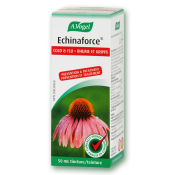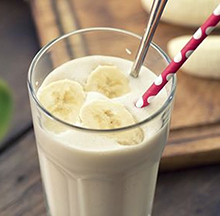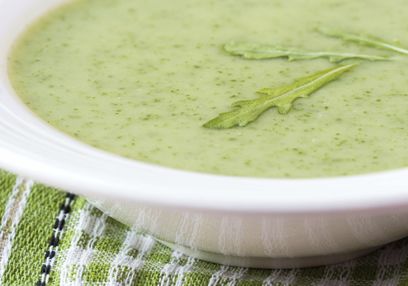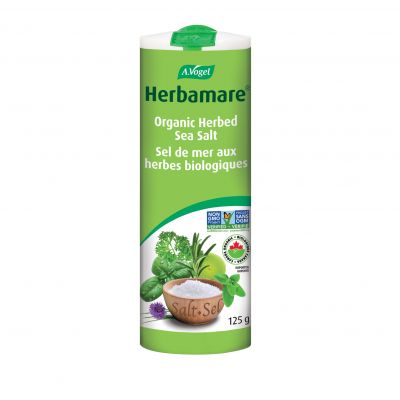1. Vitamin C
The flu and cold viruses are rampant at the moment, which is where vitamin C comes into the picture. This incredibly versatile nutrient supports your immune system by maintaining your production of pathogen-fighting white blood cells, while working as a powerful antioxidant to protect your immune cells from damage.
However, your immune system isn't the only part of you that needs a helping hand: winter can also be especially tricky if you suffer from circulatory problems or skin conditions like eczema. Fortunately, vitamin C helps strengthen the walls of your veins, reduces inflammation and boosts the production of collagen, an essential protein for healthy skin!
Unfortunately, humans are unable to synthesize vitamin C, so we need to get it through food. Vitamin C deficiencies are rare, one possible reason being that vitamin C comes in a wide variety of foods, including seasonal ones such as oranges, berries, kale, spinach, broccoli and Brussels sprouts, which are all very popular at this time of year.
Many recipes on our food hub use these ingredients: try our "Berry Nice" Smoothie and Quinoa salad with mangoes, avocados and tomatoes.
Nevertheless, if you feel that your immune system needs extra support, you could try Echinaforce to prevent and treat cold and flu symptoms.
2. Zinc
When it comes to essential vitamins and minerals, zinc is often overlooked. This can be problematic as zinc is important in supporting your immune system, with some studies finding that taking zinc supplements may reduce the overall length and severity of cold symptoms.
Impressive, but that's just scratching the surface. Zinc also works to balance your hormones, is crucial for your blood vessels, plays a role in synthesizing protein and breaking down carbohydrates, and is essential for healthy vision! Unsurprisingly, zinc deficiencies are associated with a range of symptoms, from skin problems such as acne, to poor immune function.
Thankfully, we need only a small amount of zinc each day—between 7 mg and 9.5 mg. This nutrient is readily available in foods such as pumpkin seeds, cashews, eggs, chickpeas and seafood like oysters and crab meat—all easy to incorporate into a healthy, balanced diet.
3. Vitamin D
Like vitamin C, vitamin D is often associated with the immune system and winter in general. That's because, although your body can synthesize vitamin D, it requires one key crucial ingredient: sunlight. Since the sun's rays are in short supply during the darker winter months, vitamin D deficiencies are quite common, especially for those with a restricted diet, as this nutrient is available in only a few foods.
This can cause all sorts of problems, as you need vitamin D to absorb calcium and support bone health. Vitamin D deficiencies have been associated with sleep problems, fatigue, poor immunity and even mood disorders such as Seasonal Affective Disorder (SAD). That's why Health Canada has recommended that, during the winter months, we take a supplement containing 15 mcg of vitamin D.
4. Protein
When the cold weather sets in and the nights grow longer, most people's immediate reaction is to take shelter in their homes and tuck into seasonal snacks. Stews and heavier meals are definitely top of mind at this time of year, which can affect your waistline as you binge on sugary drinks and carb-heavy foods.
That's why it can help to include more lean sources of protein in your diet. Not only does protein help support your muscles and joints, it can also help in maintaining healthy immune and nervous systems. But that's not all: it can make you feel fuller for longer, curbing those cravings and keeping your blood sugar levels balanced.
Of course, by protein I don't just mean that you should eat more turkey or down a protein shake. Protein comes in an assortment of foods, from green leafy vegetables like spinach to pulses such as lentils or soy-based products like tofu or soymilk.
5. Vitamin B12
Vitamin B12 is important for maintaining your mood and cognitive function. This is even truer in winter as low levels of vitamin B12 have been associated with SAD and other depressive symptoms such as mood swings, depression, fatigue and brain fog.
The main problem with vitamin B12 is that not many foods contain it, and those that do are usually derived from animals—one good exception is brewer's yeast, also known as nutritional yeast. This lack of options complicates things for vegans and vegetarians, which is why some people rely on supplements.
6. Omega-3
Omega-3 has really grown in the public consciousness in recent years, with most people now being well aware of how it can benefit cognitive function and memory. But did you also know that omega-3 helps to support your skin, eyes and sleep patterns too? It's true, but unfortunately, during winter most people tend to get less omega-3. Part of this is simply due to seasonal changes—oily fish, a major source of omega-3, simply isn't as available in winter.
This depletion of omega-3 can have a number of repercussions. For starters, your skin, which is more vulnerable during winter, needs omega-3 to stay strong and hydrated. It's also believed that omega-3 could be linked to SAD: studies show that omega-3 could be useful in easing low mood and other depression symptoms.
If you're looking to increase your intake of omega-3 during winter, you can always turn to plant-based sources such as chia seeds and flaxseed. Alternatively, if you're more interested in investing in a supplement, you could try our VeganOmega-3 which is derived from algae oil and flaxseed.
7. Vitamin E
As we've mentioned, winter can be a troubling time for your skin. The combination of the cold air outside and the warm, dry air indoors can easily dehydrate your skin, making it more susceptible to irritation.
Vitamin E works to tackle this problem in two ways. First, it helps moisturize your skin, thus preventing dryness, and second, it has natural antioxidant properties. And vitamin E isn't just good for your skin: it can also help your circulation by preventing platelets from sticking to the blood vessel walls. Your body also uses vitamin E to make red blood cells which carry oxygenated blood and nutrients to all your cells.
The best way to increase your intake of vitamin E is to eat more vitamin E rich foods, such as avocados, broccoli and spinach.
8. Chromium
During winter, especially during holiday celebrations, you might be more inclined to devour sugary treats and drinks, which can affect blood sugar levels, causing them to fluctuate wildly. This in turn can negatively impact your sleep cycle and contribute to cravings and low energy throughout the day.
Chromium is believed to help counter this by enhancing the action of insulin and helping to regulate your blood sugar more effectively. Of course, the evidence surrounding chromium is divisive, so if you do decide to increase your chromium intake, whether through your diet by eating more chromium-rich foods like potatoes, lentils or broccoli, or through a supplement, it might be a good idea to take other measures too.
You can read more about food cravings and how to manage them in the article, "Eating for the wrong reasons? Keep cravings at bay!".
References:
https://www.nhs.uk/news/medication/zinc-for-the-common-cold/
https://www.ncbi.nlm.nih.gov/pubmed/19499625







